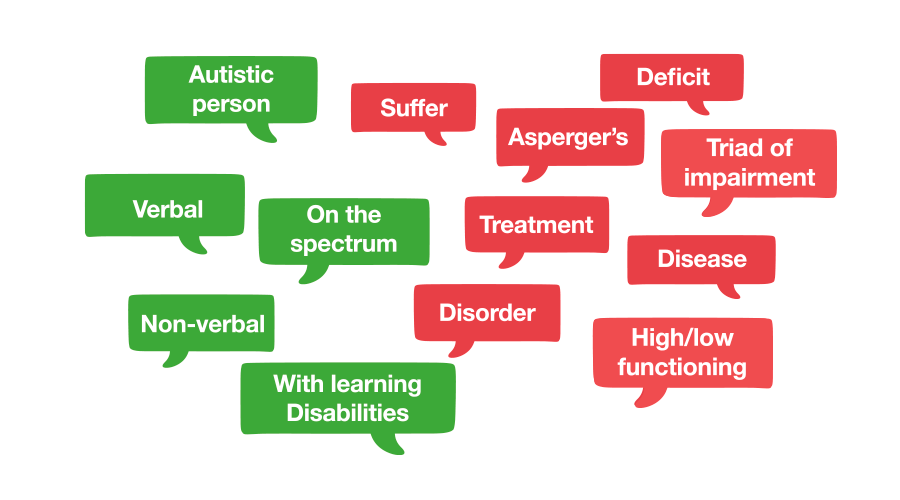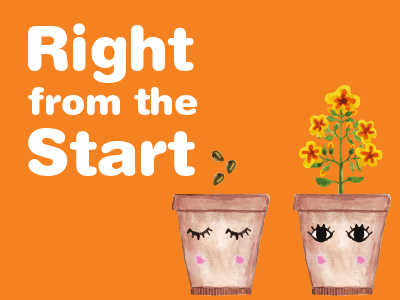How to talk about autism

Autistic people describe themselves and autism in different ways, so it is always best to ask the individual themselves what their preference is.
Some people may not have the ability to communicate their preference in a way we can understand. If you can't ask them, try asking someone who knows them well or use the language they use.
Words are important
Research shows there is no single way of describing autism that is universally acceptable. When we asked young people, the term they would like us to use is ‘autistic person’. They preferred this phrase over ‘person with autism’.
We use this most often when we write. But people have different preferences when describing themselves and autism. When you meet an autistic person, they might use different terms to describe themselves:
- Autistic person
- On the spectrum
- Person with autism
- I have Asperger Syndrome
We will never correct someone about how they want to describe themselves. When communicating with an individual we will use their preferences.
Terms we avoid
There are some terms used to describe autism that we think make life harder for autistic children and young people. So, we avoid them.
- We don’t use the terms ‘high functioning’ or ‘low functioning’. Instead, we describe a person’s support needs, for example, some autistic people may need higher levels of support than others.
- We say ‘distressed behaviours’ or ‘behaviours that challenge’ rather than ‘challenging behaviour’. An individual shouldn’t be defined by certain behaviours.
- We don’t use terms like ‘genius’ to describe autistic people. The ‘rain man’ stereotype isn’t the experience of most autistic people and so isn’t helpful

We talk about autism as a difference, not a deficit
The way we view autism is very important and can have a huge impact on the way we behave towards and support autistic people.
We approach autism as a different way of being rather than as a ‘deficient’ or ‘disordered’ way of being.
We believe the differences each of us have as humans should be embraced. Variations of human neurology should be respected as just another way of being.
When talking about autism, avoid terms like ‘suffer’ or ‘disease’. It’s not a mental health condition or a disease, it is a different way of experiencing and processing the world around you.
We understand that some autistic people use the term ‘disorder’ to explain their experience. We respect their right to do this, but as an organisation it’s not a term we use.
We amplify the voices of autistic children, young people, families and carers
To really understand autism, it is essential to listen to and value what autistic people say about their experiences.
Everything we say is grounded in what we hear from autistic children, young people, families and carers.
Further information on how to speak about autism
Read more about language and support in our Include Autism toolkit.
Read our top tips for communicating effectively with autistic people.
Related information
Discover more information related to this topic area.






